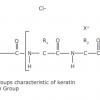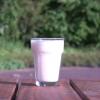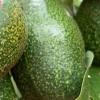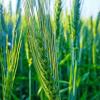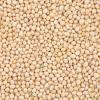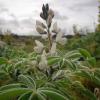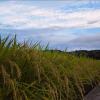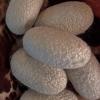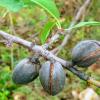Proteins
Proteins are among the most critical substances in the body, in which they have a wide variety of functions. They are the building blocks of living organisms and are indispensable to all life processes. The many favorable properties of proteins can be utilized for cosmetic purposes. As bioactive substances, they play a key role in many cosmetic products.
These natural polymers consist of long chains of amino acids that are good sources of essential building blocks for collagen and elastin fibers, natural moisturizing factors (NMFs), and antioxidants, protecting skin from free radicals and UV-induced damage. Proteins are used in almost all kinds of skin and hair care products. They are an indispensable component of modern formulations: Those valuable active substances, which are always relevant to contemporary trends. Furthermore, they are used to enable cosmetic products to satisfy consumer expectations and, in particular, to ensure that they comply with desired claims of efficacy, as explained below. Last but not least, a protein's origin, for example, keratin, almond, or wheat, is crucial to its characteristics, and its effects are essential for the development of marketing concepts.
Some proteins have beneficial effects on skin regeneration, cell renewal, and microbiota balance. Others create non-sealing films on the skin and hair, protecting them from damaging environmental factors, smoothing texture, or giving a silky shine. Vegetable-sourced proteins are steadily gaining importance. Materials of vegetable origin, such as wheat, rice, and almonds, are available, opening the door to positive associations, and providing skincare products from renewable materials, and convincing "green" concepts.
Molecular association of bio-proteins and polysaccharides obtained from oats, Avena Sativa Protein Extract presents outstanding anti-wrinkle properties due to its action at both biological and mechanical levels.
Biomin® Acquacinque is a unique skin-friendly complex that contains magnesium, iron, zinc, copper, and silicon ions. The minerals are covalently bonded to a polypeptide substrate from Saccharomyces cerevisiae by a bioengineering process.
Biophos 35 is a naturally occurring sugar-protein-adenosine triphosphate complex that has been fortified with protein-bonded potassium and magnesium. It is a protein designed to re-energize the skin.
Keratin is a highly specialized fibrous protein found naturally in the hair and nails. It is rich in cysteine amino acid and differs from all body proteins thanks to its mechanical properties, tensile strength, and protective ability.
Cocodimonium Hydroxypropyl Hydrolyzed Milk Protein is a quaternized milk protein proven to impart excellent conditioning benefits to the hair.
Collamoist WS is a water-soluble protein and emollient complex that work together to provide balanced moisturizing qualities to the skin and hair.
A fruit native to Mexico, the Avocado was consumed more than 10,000 years ago by the Aztecs and Mayas and was imported to Europe in the 17th century. The varieties used to produce Effipulp® are mainly harvested in Latin America and Africa.
Glycine Soja Protein is a soybean protein, a plant-derived treatment specialty that specifically inhibits skin enzymes (human leucocyte elastase and tryptase) to minimize damage to the skin from their unscheduled release.
Glycoproteins a soluble mucoproteins derived from yeast cell walls, having a molecular weight between 10,000 and 20,000. Composed of oligosaccharides (consisting of 5 to 10 sugar units) and a protein core, it is in the form of a water-soluble material with a globular structure.
Hydrolyzed Barley Protein is a protein hydrolyzate obtained from food-grade Golden Barley (Hordeum jubatum). It is carefully hydrolyzed without the addition of enzymes to preserve its unique characteristics.
Vegetable proteins may be extracted, solubilized, purified, and supplied as light-colored, good clarity, low ash solutions.
Keratin is made up of fibrous proteins rich in sulfur-containing amino acids, an essential component present in skin, hair, and nails. Hydrolyzed keratin is a mix of peptides and amino acids obtained from the controlled bio- or chemical hydrolysis of proteins from natural origin.
Maca (Lepidium Meyenii Walpers) is a taproot plant from the Brassicaceae family. It has been grown as a food crop and for its medicinal properties since the Neolithic era in the High Andes in Peru, at an altitude of 3,500 to 4,200 meters.
Hydrolyzed Linseed Seed is a hydrolyzed protein derived from Flax (Linseed - Linum Usitatissimum). It imparts benefits to skin and hair care products and is particularly suited to products based on natural concepts.
Hydrolyzed Lupine Protein is a clear light-yellow or orange-yellow solution with a characteristic odor.
Hydrolyzed Milk Protein is a biotechnology-derived ingredient that contains milk peptides and is rich in the amino acids cysteine and methionine and in Vitamin B6. It has sebum-regulating, nourishing, and skin barrier-repairing properties.
Hydrolyzed rice protein is a versatile alternative to cosmetic grade proteins, carefully processed to yield a low odor and color product, which is freely soluble in water.
Hydrolyzed Sweet Almond Protein is an enzymatic or chemically hydrolyzed protein extracted from sweet almond seeds. Its aqueous solution is a clear amber-yellow liquid with a slight odor.
Hydrolyzed Vegetable Protein is a general name for enzymatically or chemically hydrolyzed grain proteins extracted from various sources, including oats, wheat, maize, and soybean. It is compatible with almost all compounds used in personal care products.
Hydrolyzed Wheat Protein is a product of enzymatic or chemical hydrolyzation of vegetable protein wheat gluten. Its aqueous solution is a clear amber-yellow liquid with a slight odor, typical use level of 1-25%.
It has been known for many years that hydrolyzed proteins will make excellent additives for mildness in surfactant systems. A paper was published in the JAOCS, summarizing work done on the use of proteins as counter-irritants in surfactant systems.
Keratec IFP is a unique two-component active that works to protect and strengthen the hair.

